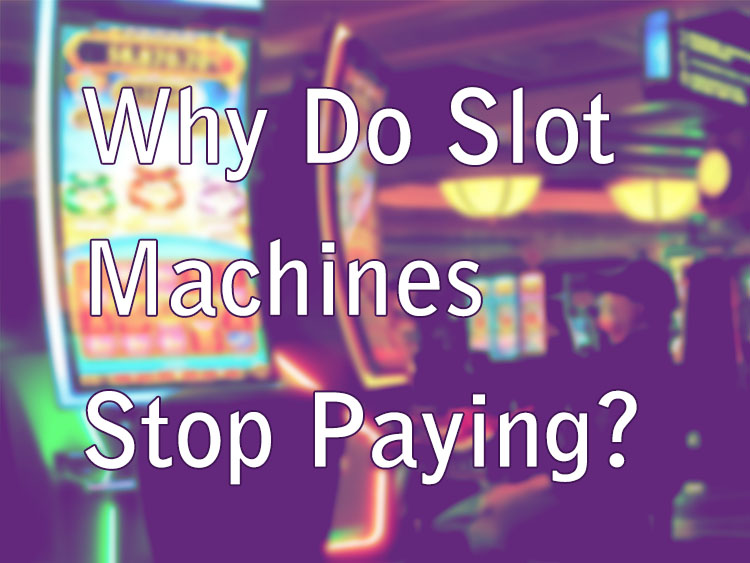You may have experienced players referring to slots as 'cold' before. A slot going 'cold' is when it ceases to reward payouts as regularly as players believe it should.
Of course, slots cannot go cold because all their outcomes are random. So, every time you play a slot game, you should remember that winning isn't guaranteed.
The goal of playing casino slot games is for entertainment rather than profit. A slot's payout behaviour depends on the slot RTP or volatility. We'll explore more on the subject below.
Why Do Slot Machines Stop Paying?
It's common for slots to go through periods where they don't land wins. This is because slots produce unpredictable outcomes, with every spin having the same chance of landing a win as the previous one, so there's no such thing as a hot or cold slot.
We say slots produce random results because they use Random Number Generators (RNGs). RNGs use mathematical algorithms that compute vast quantities of number sequences each second to produce unexpected results on slot machines. The system is active even when the game is not in use.
With RNGs at work, predicting a pattern or an outcome of a spin is near impossible. Therefore, you cannot impact the results by increasing or decreasing your stake or using other strategies. Aside from Random Number Generators (RNGs), players should also factor in slot volatility.
Volatility
Volatility or variance describes a slot's theoretical behaviour in relation to the frequency of winning combinations landing and the size of the win.
Low-volatility slots are likely to land wins more frequently than higher-volatility slots but in smaller sizes. On the other hand, high-volatility slots may land more significant but less frequent wins.
So, volatility describes the theoretical behaviour of a slot, but it's important to remember that slots are random and unpredictable, so results may differ in practice.
Return to Player (RTP)
Return to Player or RTP is a theoretical value assigned to slots that refers to how much a game is likely to pay out over a long time. For example, the industry average is around 96%, meaning that for every £100 wagered, the slot pays £96 back out to players. Note that the RTP doesn't act as a guarantee but rather a guide as to how the slot can pay out; it is an average calculated across a large sample of spins.
Are Slot Machines Rigged?
One common misconception most players have when slot machines stop paying is that casinos rig the machines. However, casinos do not have control over slot machine outcomes because the RNGs do.
RNGs produce random outcomes each millisecond that no mathematical genius or casino owner can predict. Therefore, rigging these slot machines in your favour is difficult despite any level of expertise.
RNGs are audited by third-party companies to ensure it meets an industry standard of randomness.
Some players believe slot machines are rigged after hitting a losing streak. Unfortunately, they forget that slots are a game of chance and winning isn't guaranteed. You can't do anything to influence the outcome of your spins; choosing games based on volatility, Return to Player rates, and stakes ranges to your preference but within your budget is as much as you can do.
Is It Better To Stay On One Slot Machine Or Move Around?
Now that you know about Random Number Generators (RNGs), you'll realize that staying on one slot machine or moving around has no impact on whether slots pay. However, some players mistakenly believe that staying at one machine long enough might land you a win, while others swear by hopping from one to another. You won't waste time on such rumours if you understand how the game works through RTP, volatility, etc. That's because slots produce unpredictable results on every spin, so it's impossible to tell when the slot will trigger a win, even after playing for a long time.
In addition, a high RTP might guide you to choose slots but remember that every outcome is random. So, moving around to slots with similar RTP values will also not make a difference.
What Determines When A Slot Machine Will Payout?
We cannot know when a slot machine will pay out because the Random Number Generator creates multiple mathematical values on each spin. These algorithms determine the random symbol combinations that appear on the reels. For example, they could be matching symbols, mixed symbols, and so on.
The slot's RTP and volatility value might provide an indication as to how a slot may act. But ultimately, we cannot know when slot machines will pay out due to their random and unpredictable nature.
Do Casinos Control Slot Machines?
No, casinos cannot control slot machines. Some players believe that they do when it appears slot machines stop paying. However, online casinos like Wizard Slots only host the slots on their platforms, but they cannot influence the game outcomes.
Casinos don't control slot machines because they cannot predict what outcome the Random Number Generators produce. It's impossible because the system calculates millions of mathematical algorithms every second.
Developers may create slots with a range of RTP values, and the casinos can choose which value to use, but this is the extent of their input on this.
Conclusion
So, the next time you find yourself asking: why do slot machines stop paying? You'll remember that Random Number Generators produce random and unpredictable slot results. The odds of winning don't change part way through playing a slot, so a slot appearing to go 'cold' is down to chance.
So stick within your budget every time you play online slots at Wizard Slots, pay by mobile casino, and remember the aim is to have fun instead of playing to win money.

